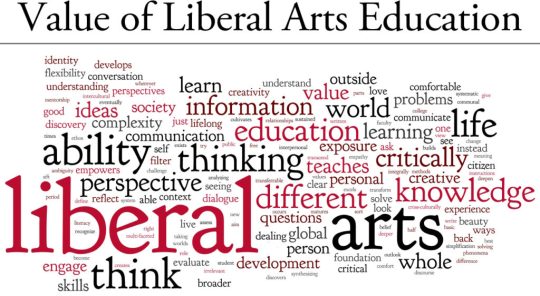What Is a Liberal Arts Education? - Blog

What Is a Liberal Arts Education?
What is a Liberal Arts Education?
At its core, liberal arts education encompasses courses that explore humanities and social sciences. These can range from art, literature, history, linguistics, philosophy, religion ethics modern foreign languages music theater.
A liberal arts degree typically involves four years of full-time study, leading to either a bachelor’s or master’s degree. The best liberal arts degrees prepare you for career opportunities across many fields.
Though certain technological skills, such as computer programming and automation, have become essential in many today’s jobs, it is the soft skills gained through a liberal arts education that employers value most. The best liberal arts degrees teach students how to think critically, adapt quickly and solve problems – all of which employers look for when hiring candidates.
Employers also value the ability to work effectively with people from various backgrounds. This broad perspective is essential in today’s fast-paced world, where job opportunities may shift more frequently than ever before.
Liberal arts programs usually emphasize an interdisciplinary approach to learning, which exposes students to various subject areas and encourages them to see things from multiple viewpoints. Furthermore, these courses stress communication and writing abilities which are highly valued in today’s workplace.
Liberal arts education encourages students to select their majors early on. This gives them a chance to explore the world and gain an insight into what they want to accomplish in the future, helping them make informed decisions later on about their academic path.
In the past, students often switched between college majors while working towards their degree. This practice still prevails today at many liberal arts colleges.
Due to this, liberal arts colleges provide students with a great deal of freedom to pursue their interests. Furthermore, they can participate in extracurricular activities which allow them to get involved with their community and acquire leadership experience that will serve them well throughout their future careers.
Liberal arts schools typically offer minors and certificate programs to complement a student’s main major or if they wish to specialize in an area of study.
Liberal arts colleges tend to be smaller and more residential than traditional universities, offering small class sizes and lower student-teacher ratios. Faculty become mentors and research collaborators with their students.
When selecting a liberal arts school, it is essential to choose one that is founded in your faith. Not only will this enhance your academic experience, but it will also give you an anchor of Christian devotion that will last throughout life.
A liberal arts education is designed to equip you with the necessary tools for success in both your professional career and lifelong learning. It offers you the chance to hone critical thinking, communication and writing skills that will serve you well in both your professional endeavors and community for years into the future.




